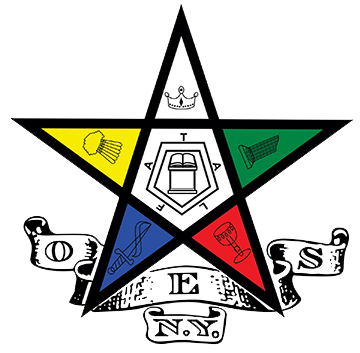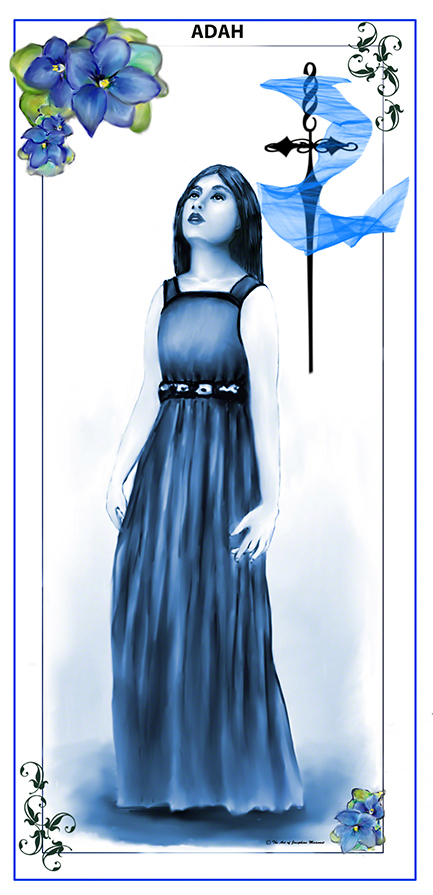In the Book of Judges (11:1-11,29-33) we learn that when the children on Ammon made war against Israel, Jephthah, a mighty man of valor,
vowed unto the Lord, and said "if thou shalt without fail deliver the children of Ammon into mine hands, then it shall be, that
whatsoever cometh forth of the doors of my house to meet me, when I return in peace from the children of Ammon, shall surely be the Lord's and I will offer up for a burnt offering."
Jephthah went forth to battle. The victory was gained. Rejoicing in his success, Jephthah returned to Mizpeh. the door of his house opened, and "behold, his daughter came out to meet him with timbrels and with dances;" Jephthah, when he saw her, cried aloud, "Alas my daughter! thou hast brought me very low, for I have opened my mouth unto the Lord, and I cannot go back."
Adah, casting aside the instruments of rejoicing, answered; "My father, if thou hast opened thy mouth unto the Lord, do to me according to that which hath proceeded out of thy mouth." She had but one request to make, that she might go among the mountains for two months and
there with her young friends prepare to meet, in calmness and resignation, her impending fate. The request was granted.
When the time had expired, she was seen, followed by a long train of her friends, winding her way down the mountainside, to the place where her father was prepared to discharge his obligation.
She approached him and with a kiss of affection, bade him farewell. taking hold of the veil which she wore, he threw it gently over her face. she rapidly unveiled herself and said that she needed not to have her face covered for she was not afraid. Her father replied that he could
not fulfill his vow while she looked upon him and again cast the veil over her. She threw it off the second time and turning from him, said that she would look up to the heavens, so that he might not be unnerved by the sight of her face. A third time, however, he insisted, and a third time she resolutely cast it off, this time holding the ends of it firmly in her hands. Again she declared that she would cast her eyes upward upon the Source of Light. Jephthah redeemed his vow, and because of the noble qualities she had exhibited, Jephthah's daughter became famous in the annals of Scripture.

